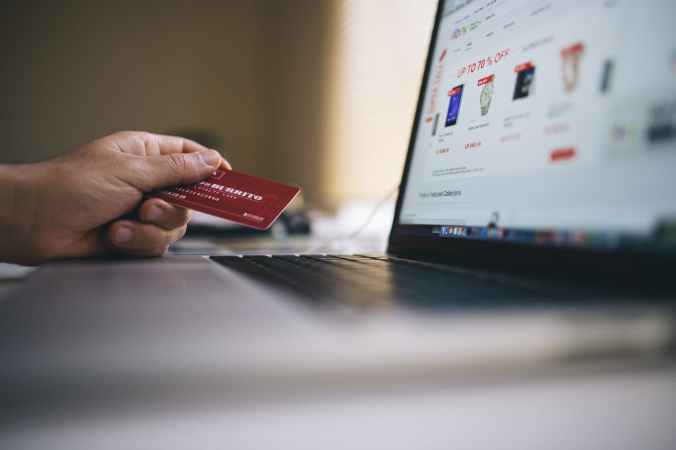
Photo by Negative Space on Pexels.com
By: Timothy Chien
Online shopping is a near ubiquitous aspect of American life. As online marketplaces continue to grow, counterfeit goods have increasingly become a problem for consumers. If it turns out that your expensive handbag or jewelry is a counterfeit, that’s unfortunate, but you’ll be okay in the long run. However, it’s an entirely different story if you unknowingly buy a knockoff child car seat that doesn’t meet federal safety regulations. Counterfeiters passing off their goods as legitimate is not the victimless crime that some hold it out to be; for some products, the consequences can be significant and dangerous for unassuming consumers.
It is with this in mind, that on March 2, 2020, the House of Representatives introduced the Stopping Harmful Offers on Platforms by Screening Against Fakes in E-commerce Act of 2020 (SHOP SAFE Act). The bill seeks to amend Section 32 of the Lanham Act by providing statutory trademark liability for electronic platforms who provide a venue for third-parties who sell counterfeit goods that “implicate health and safety” and who do not take “reasonable steps” to curb such activity. Some examples of what goods “implicate health and safety” include cosmetics, baby formula, batteries, chargers, air bags, car seats, and brakes. Additionally, some of the key “reasonable steps” outlined in the bill include the platform verifying the identity of third-party sellers, screening goods, implementing a process to quickly remove suspected counterfeit goods, and removing repeat third-party offenders from the platform. (A section by section analysis of the bill can be found here.)
Although the Act requires electronic commerce companies to implement certain procedures to police their platforms, bill sponsor Jerrold Nadler emphasizes that the Act is intended to stem the tide of an increasing number of dangerous counterfeit goods saturating the online market and to protect consumers. In a Judiciary Committee press release, Nadler said, “Consumers should be able to trust that what they see and purchase online is what they will get, but counterfeiters continue to join platforms with ease and masquerade as reliable sellers in order to infect American households with dangerous and unsafe counterfeit products. The SHOP SAFE Act proposes a set of commonsense measures to tackle the gaps in these platforms’ systems and stop counterfeit sales.”
Background on contributory infringement
The current standard for contributory trademark infringement was set forth in 1982 by the Supreme Court in Inwood Laboratories, Inc. v. Ives Laboratories, Inc. According to Inwood, a distributor is liable for contributory trademark infringement in only two circumstances: if it intentionally induces another to infringe a trademark or if it continues to supply a product that it knows or has reason to know is infringing a trademark. Since electronic commerce platforms have little reason to intentionally induce a seller to infringe a trademark, realistically, contributory infringement liability will only be found under the second prong of the Inwood standard—where a platform continues to supply a product that it knows or has reason to know is infringing a trademark.
In another landmark case, Tiffany, Inc. v. eBay Inc., the Second Circuit held that generalized knowledge of infringement was not enough to satisfy the knowledge component of Inwood. In that case, the court was tasked with determining whether eBay was contributorily liable for selling counterfeit Tiffany jewelry on its website. It was undisputed that eBay knew that some portion of Tiffany merchandise sold on its platform were counterfeit given that Tiffany sent demand letters to eBay, notices of alleged infringement, and buyer complaints of counterfeit Tiffany goods received by eBay. Despite this, the court still concluded that liability would only be found if eBay was aware of specific instances of infringing products and did not take action to remove them. Under this standard, eBay only had a duty to remove listings where specific instances of infringement were identified or suspected; thus, eBay did not have any obligation to remove all the instances of infringing activity that was surely occurring on its site.
Although the court acknowledged that eBay made significant investments in anti-counterfeiting measures including implementing a fraud detection engine, a notice-and-takedown system, and a three-strikes rule for suspending repeat offenders, the court did not elaborate precisely on what significance, if any, eBay’s proactive measures played in finding no contributory infringement. Because the court left open the question, there’s relatively little guidance as to what additional measures online platforms are actually required to take.
As the Second Circuit quoting Inwood stated, “plaintiffs bear a high burden in establishing ‘knowledge’ of contributory infringement, and that courts have “been reluctant to extend contributory trademark liability to defendants where there is some uncertainty as to the extent or the nature of the infringement.”
Conclusion
There’s no doubt that current law doesn’t require these online companies to do much to avoid liability. As long as these companies remove specific instances of infringement that come to their attention, they’ll be in the clear, and it is the brand owners who have the onerous task of proving contributory infringement. The Shop Safe Act seeks to augment the case law set out by Inwood and Tiffany by introducing liability to encourage these online companies to take a more proactive role in removing infringing activity.
If this bill becomes law, this would be a big win for consumers. This law would provide a clear set of requirements for electronic commerce platforms to avoid liability, and would incentivize these platforms, who are perhaps the best situated to prevent infringement, to do a better job in safeguarding their platforms against selling counterfeit goods. These retailers profit massively from the growing online marketplace, so it seems only fair that they share some of the responsibility in making sure that consumers are getting exactly what they believe they are buying.